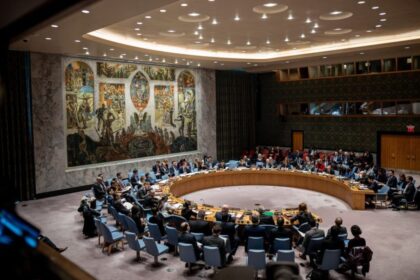RASC News Agency: Zalmay Khalilzad, the former U.S. Special Representative for Afghanistan Reconciliation, has issued a stark warning that Pakistan’s recent aerial assault on Kabul, which appears to have failed in achieving its objectives, may mark the beginning of a profound and destabilizing crisis across South and Central Asia. He emphasized that the primary target of Islamabad’s strike may not have even been present in the Afghanistani capital, highlighting both the recklessness of the operation and Pakistan’s escalating brinkmanship in the region.
In a detailed statement posted on X (formerly Twitter), Khalilzad described how Pakistani fighter jets have repeatedly flown over Kabul in recent days, breaking the sound barrier and sending waves of fear throughout the city. Meanwhile, armed groups and local militias within Afghanistan are reportedly preparing for potential retaliatory actions. “Certain leaders in Kabul are advocating for immediate reprisal,” Khalilzad observed, noting that such impulsive decisions risk plunging the region into a full-scale confrontation.
Khalilzad underscored that during periods of heightened tension, “diplomacy remains the only viable tool to avert disaster.” He reported that Pakistan’s defense minister and the head of the Inter-Services Intelligence (ISI) have signaled their willingness to travel to Kabul though it remains uncertain whether the purpose of this visit is to engage with the Taliban regime or to open indirect communication channels with the Tehrik-e-Taliban Pakistan (TTP), the Pakistani militant network that has exploited Afghanistan as a safe haven for its operations.
Questioning Islamabad’s motives, Khalilzad recalled the period of former Prime Minister Imran Khan, when tentative negotiations with the TTP had shown the possibility of achieving a ceasefire. “Had Imran Khan not been forcibly removed and imprisoned,” he wrote, “a negotiated settlement with the TTP might have prevented thousands of deaths. Today, Pakistan teeters on the edge of collapse, engulfed in insurgency, extremism, and internal disorder.”
Khalilzad further highlighted Pakistan’s structural vulnerabilities, noting that the very militants Islamabad once manipulated as instruments of regional strategy now operate autonomously, contributing to the state’s fragility. “Decades of strategic duplicity are now unraveling,” he stated, “leaving both Afghanistan and Pakistan exposed to escalating conflict.”
Emphasizing the urgent need for coordinated international action, Khalilzad warned that while diplomatic avenues are narrowing, a concerted effort by influential powers notably the United States, Saudi Arabia, Qatar, and the United Arab Emirates could still avert a wider conflagration. “Sustained international pressure is essential to prevent a regional catastrophe,” he asserted.
In his concluding remarks, Khalilzad issued a pointed cautionary note: “Continued unilateral militarism by Pakistan will not only deepen the Kabul-Islamabad crisis but could trigger a broader spiral of instability, endangering the entire region.”
Security analysts observing the unfolding situation stress that while Pakistan’s airstrikes signal desperation, the Taliban’s muted response underscores their strategic weakness. The regime’s inability to respond to a direct assault on the Afghanistani capital exposes its internal fractures, political isolation, and dependence on Islamabad a dependence that renders Kabul both a pawn and a victim in a dangerous geopolitical game.
Under the Taliban’s fractured rule, Afghanistan has become a theater of external power struggles and internal paralysis. Its skies have been violated by foreign aircraft, its borders are contested, and its already fragile diplomatic channels have been further compromised. The Taliban’s persistent incompetence and systemic mismanagement continue to amplify the country’s vulnerability, leaving millions of Afghanistani civilians trapped between foreign military aggression and a regime incapable of providing security, governance, or even basic protection of human rights.
This episode serves as a sobering reminder that the Taliban are not merely a domestic political problem but a destabilizing force whose failures ripple beyond Afghanistan’s borders. Without decisive international intervention and robust diplomatic engagement, the ongoing vacuum of authority in Kabul risks igniting a conflict whose consequences could engulf the wider region in chaos.






